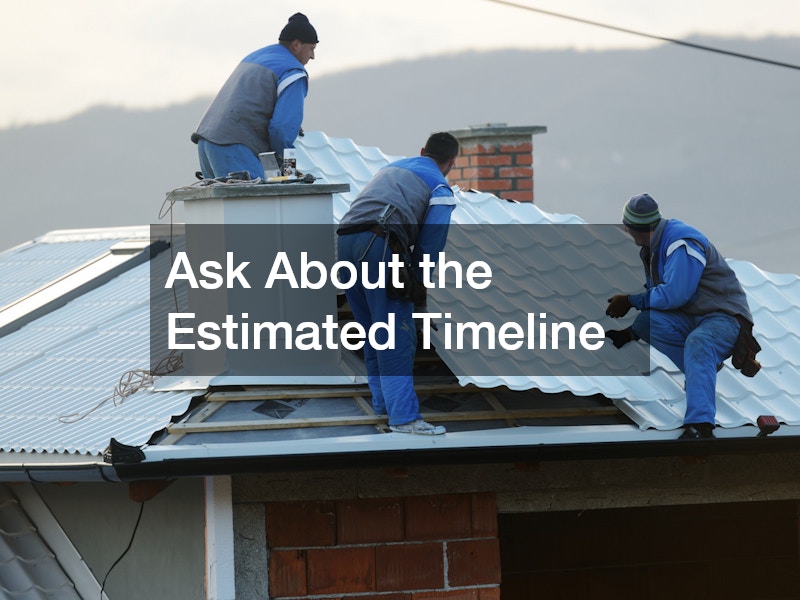When it comes to roofing projects, whether you are replacing an old roof, repairing damage, or installing a new roof on a newly constructed home, hiring the right roofing contractor is essential. A roof is not only one of the most significant investments in your property, but it also serves as your home’s first line of defense against weather, moisture, and other environmental hazards. Asking the right questions before hiring a roofer can save you money, prevent future problems, and ensure that the job is done properly. Here’s a comprehensive guide on the questions you should ask roofers before committing to their services.
1. Are You Licensed and Insured?
One of the first and most crucial questions to ask a roofing contractor is whether they are licensed and insured. Licensing requirements vary by state, but a license typically ensures that the roofer has met local standards, possesses the necessary skills, and adheres to industry regulations.
Insurance, including liability and workers’ compensation, protects you in case of accidents or property damage during the project. A reputable roofing contractor should readily provide proof of both. Hiring an unlicensed or uninsured roofer could expose you to liability if an accident occurs on your property, so this is non-negotiable.
2. What Experience Do You Have With My Type of Roof?
Roofing materials vary widely, including asphalt shingles, metal, tile, slate, and flat roofing systems. Each type requires specialized installation techniques and maintenance knowledge. Ask the roofer about their experience with the specific material and roof style on your home. Contractors with experience in your roof type are more likely to perform the work efficiently and correctly, reducing the risk of problems like leaks, structural issues, or premature wear. Request examples of past projects or references from clients with similar roofs.
3. Can You Provide References or Reviews?
A trustworthy roofing contractor will have satisfied customers willing to speak about their experiences. Ask for references from previous projects and follow up with these clients to inquire about quality, timeliness, and professionalism. Online reviews can also offer insight into the contractor’s reputation, though it’s essential to consider the overall trend rather than focusing on individual negative reviews. References and reviews can give you confidence in the roofer’s work ethic and reliability.
4. What Is the Estimated Timeline for My Project?
Knowing how long your roofing project will take is vital for planning purposes. Ask the contractor for a detailed timeline, including start and completion dates, and clarify whether there are factors that could cause delays, such as weather conditions or material availability. Clear communication about the timeline helps you manage expectations and reduces the likelihood of misunderstandings during the project. A reputable roofer should provide a realistic timeline and keep you updated if changes occur.
5. What Is Included in Your Estimate?
Roofing projects involve numerous costs beyond materials and labor. Ask the contractor for a detailed written estimate that outlines all components of the project, including the type and quality of roofing materials, removal and disposal of the old roof, permits, labor costs, and potential additional expenses. Understanding what is included in the estimate helps prevent unexpected charges and allows you to compare bids from multiple contractors more accurately. Be wary of estimates that seem unusually low, as they may indicate subpar materials or rushed work.
6. Do You Offer a Warranty?
A warranty provides assurance that the contractor stands behind their work. Ask about both the manufacturer’s warranty for materials and the contractor’s workmanship warranty. Workmanship warranties typically cover issues such as leaks, installation errors, or material defects for a specified period. Knowing the warranty details can help you avoid costly repairs in the future and provides peace of mind that your investment is protected.
7. How Will You Handle Permits and Inspections?
Many roofing projects require permits from local authorities and inspections during and after installation. Ask the contractor if they will obtain the necessary permits and coordinate inspections. Experienced roofers understand local building codes and can ensure that your project complies with regulations. This not only prevents legal issues but also ensures the safety and integrity of your roof.
8. What Is Your Cleanup Process?
Roofing work generates debris, nails, and other waste materials that can damage your property or pose hazards. Ask the contractor about their cleanup process and how they will protect your landscaping, driveways, and exterior spaces. A professional roofer will take precautions, remove debris promptly, and leave your property in good condition.
9. How Do You Handle Unexpected Issues?
During a roofing project, unforeseen problems may arise, such as hidden water damage, structural concerns, or the need for additional materials. Ask the contractor how they handle unexpected issues and whether they provide updated estimates or seek approval before proceeding with extra work. Clear communication in these situations is crucial to avoid conflicts or budget overruns.
10. Can You Provide a Written Contract?
Never hire a roofer without a detailed written contract. The contract should outline the scope of work, materials, cost, payment schedule, start and completion dates, warranties, and how unexpected issues will be handled. A contract protects both you and the contractor, ensuring that everyone is on the same page and providing legal recourse if the work does not meet agreed-upon standards.
Asking the right questions when hiring a roofer is essential for a successful project. By confirming licensing and insurance, reviewing experience and references, understanding costs, timelines, warranties, permits, cleanup, and contract terms, you can make an informed decision and avoid common pitfalls.



